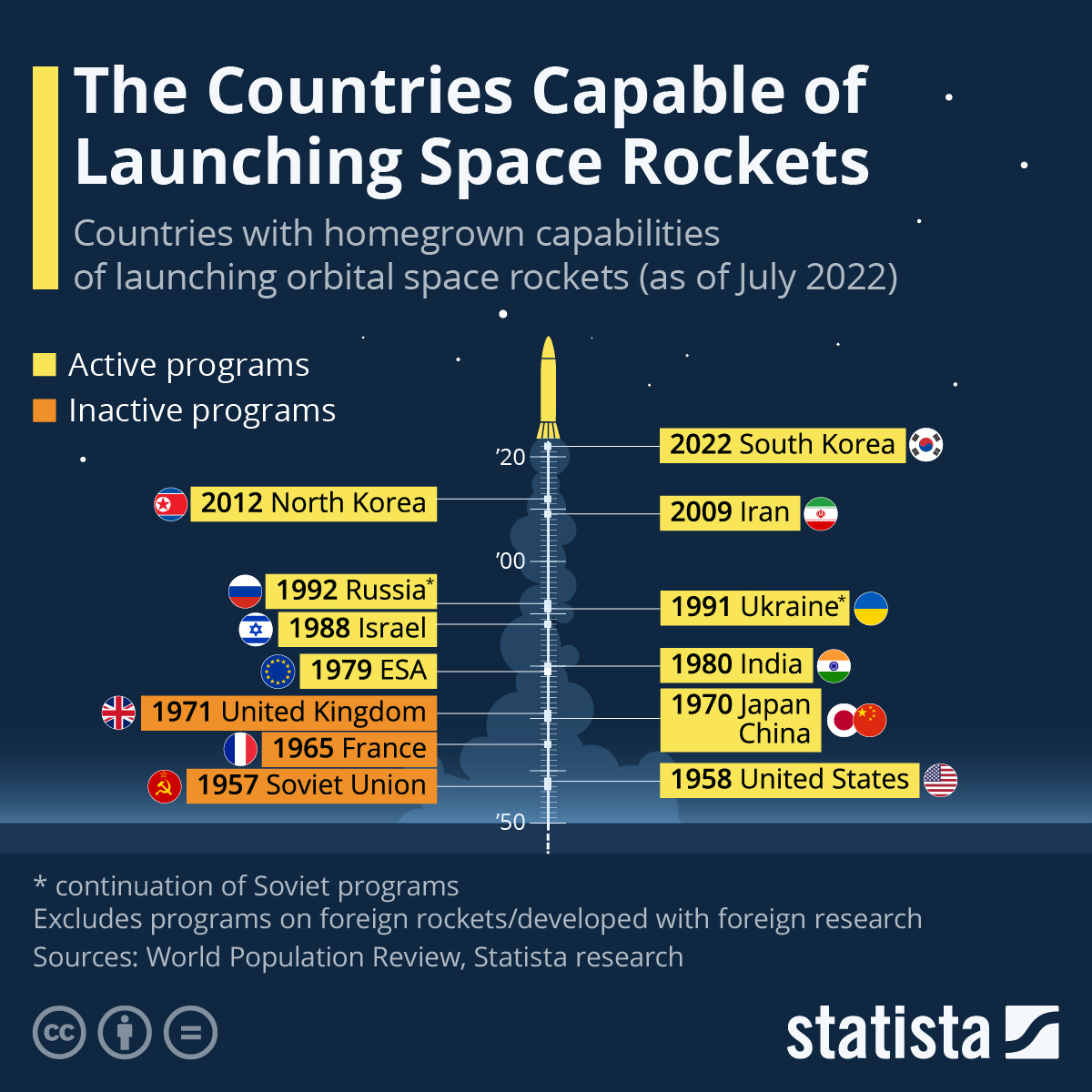
South Korea last month joined the quite exclusive club of countries which have the capability of launching space rockets using homegrown technology.
Rocket Nuri, officially named the Korea Space Launch Vehicle-II, successfully took off from Goheung in Southern Korea on June 21 carrying smaller satellites as well as a 1.3 tons dummy one, demonstrating the ability to payload satellites above the one-ton mark.
According to the Korean Herald, only seven countries in the world have ever developed this capability. According to Statista research, only 13 countries and the European Space Agency have historically developed space-going rockets.
You will find more infographics at Statista
Only 11 of these programs are active today, including the Russian and Ukrainian programs which are continuations of the former Soviet space program – the first to ever launch a rocket into Earth’s orbit. European programs in the UK and France have ended and countries in the region have been collaborating on the ESA program since 1979.
Asian rocket programs are actually among the oldest active programs in the world, with the Chinese and Japanese programs hailing back to 1970 and the Indian one to 1980.
South Korea shares the ambition to (re)land on the moon with the United States, Russia, India, Japan, China, the United Arab Emirates and Turkey.
South Korea last month joined the quite exclusive club of countries which have the capability of launching space rockets using homegrown technology.
Rocket Nuri, officially named the Korea Space Launch Vehicle-II, successfully took off from Goheung in Southern Korea on June 21 carrying smaller satellites as well as a 1.3 tons dummy one, demonstrating the ability to payload satellites above the one-ton mark.
According to the Korean Herald, only seven countries in the world have ever developed this capability. According to Statista research, only 13 countries and the European Space Agency have historically developed space-going rockets.
You will find more infographics at Statista
Only 11 of these programs are active today, including the Russian and Ukrainian programs which are continuations of the former Soviet space program – the first to ever launch a rocket into Earth’s orbit. European programs in the UK and France have ended and countries in the region have been collaborating on the ESA program since 1979.
Asian rocket programs are actually among the oldest active programs in the world, with the Chinese and Japanese programs hailing back to 1970 and the Indian one to 1980.
South Korea shares the ambition to (re)land on the moon with the United States, Russia, India, Japan, China, the United Arab Emirates and Turkey.




